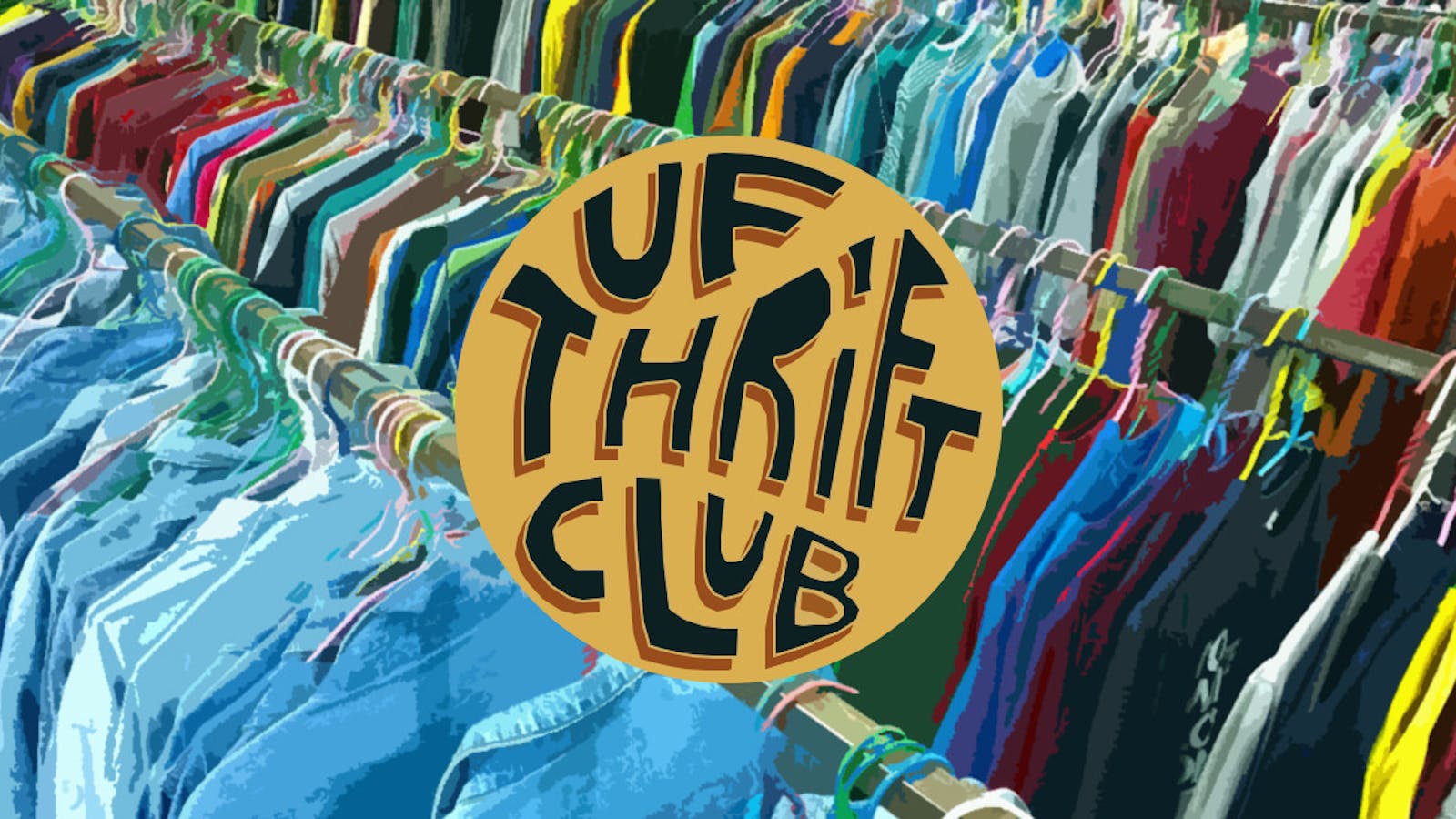Sustainability, style and the movement against fast fashion has found another home at UF.
The Thrift Club at the University of Florida is a “community of thrifty Gators passionate about upcycling and slow fashion,” according to the club’s Instagram. Through education and community building activities like thrift swaps, the club is making slow fashion — ethical processes and resources in the fashion field — increasingly attainable for students.
The club began in July 2020, amid the pandemic. In that time, it has amassed more than 1,800 followers on Instagram and is continuing to make plans as it builds a community around fashion and sustainability.
“I love the people in Thrift Club and the fact that they prioritize and emphasize the importance of slow fashion for the environment,” said member Meghan Moriarty, a 20-year-old UF early education major third year.
Although thrifting is one of its main objectives, that’s not the club’s only aim. The Thrift Club also seeks to teach students about upcycling, repurposing and advocating for the decrease of fast fashion consumption.
The club has conducted thrift swaps (when people bring their second-hand clothes and swap them with each other), workshop on upcycling (the fixing or repurposing of old clothes) and General Body Meetings on topics such as fast fashion and sustainable gift-giving.
Fast fashion is an approach to the design, marketing and manufacturing of clothing that emphasizes making fashion trends quickly and cheaply available. Under a market intertwined with fast fashion, trend cycles are shorter and overproduction is derived from unethical practices —practices that affect low-income women and the environment.
Thrift Club aims to educate students on ways that they can avoid fast fashion while also building a community of people who are passionate about making style more sustainable and ethical.
By facilitating conversations around thrifting and upcycling in the fashion and sustainability movement, the club has created a community of people whose goal is to spread the word about the benefits of staying away from fast fashion.
Velqui Perez, treasurer of the Thrift Club and a 21-year-old UF political science and international studies fourth year, said the club is not only a way for her to partake in one of her side hobbies, but it also allows her to stay informed on fast fashion and the damage that it causes.
“We’re currently working on our way to becoming an official organization on campus,” Perez said., “
The club wants to venture outside of UF and pay attention to fast fashion consumption on the community level. Thrift Club is currently working towards organizing fundraisers and is meeting with local organizations, nonprofits and thrift stores for future collaborations.
Enjoy what you’re reading? Get content from The Alligator delivered to your inbox
For Perez, thrifting has always been a part of her life. Her mother taught her thrifting tactics early on.
“It was something I did with my mom growing up,” Perez said., “If we could buy an item second hand, she would go thrifting”.
As someone who has always thrifted, Perez noted the difference between her childhood, when there was a negative association with wearing second-hand clothes, and now, with thrifting being considered trendy on social media.
“While that is great, it also has come with critique from lower income communities and the plus-size community,” Perez said.
According to the Western Gazette, when these new, higher-income communities buy from thrift stores, purchases based on necessities are impeded because of “higher corporate structures”. Many corporations that sell thrift clothes have been raising prices due to higher demand from the middle and upper class, leaving lower-income people with options that they can no longer afford.
With the upheaval of inflation, lack of clothing and increase of product prices on apps like Depop, Perez says that thrifting has become the opposite of what it’s meant to be.
Moriarty said she wants to be more sustainable and less wasteful when shopping.
“We only get one planet and it’s good to be mindful about my decisions,” she said.
Perez said she has similar goals, and with the Thrift Club, she said achieving them seems more possible.
“I want thrifting to be a solution towards rejecting fast fashion and the harm that it does to the environment and to the people that make the clothing, especially women from developing nations,” Perez said. “That’s why I joined Thrift Club.”
Contact Anushka at [email protected]. Follow her on Twitter @anushkadak.
The Independent Florida Alligator has been independent of the university since 1971, your donation today could help #SaveStudentNewsrooms. Please consider giving today.
Anushka a third-year journalism and women’s studies major. She has been previously published in Local Wolves Magazine and is the Editorial Director at Rowdy Magazine. In her free time she likes to listen to old Bollywood music and learn about/obsess over other writers’ “processes” whenever she feels like she has no idea what she’s doing (which is often).
https://www.alligator.org/article/2021/09/uf-thrift-club-tackles-fast-fashion
 fashion rec fashion wanted
fashion rec fashion wanted



